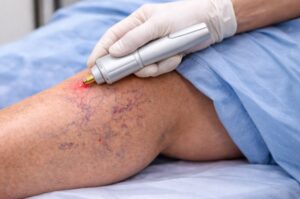Rotator cuff injuries are common, especially among athletes and people engaged in repetitive overhead activities. These injuries can be debilitating, causing significant pain and limiting the range of motion in the shoulder.
Traditional treatments often involve physical therapy, anti-inflammatory medications, and in severe cases, surgery. However, a relatively new and promising treatment option has emerged: Bone Marrow Concentrate (BMC). This article delves into what BMC is, how it works, and whether it might be the right choice for your rotator cuff recovery.
Understanding Rotator Cuff Injuries
The rotator cuff is a group of four muscles and their tendons that stabilize the shoulder joint and enable a wide range of arm movements. Injuries to the rotator cuff can range from inflammation and tendinitis to partial or complete tears of the tendons. Symptoms typically include shoulder pain, weakness, and a limited range of motion. Left untreated, these injuries can lead to chronic pain and functional impairment.
Introduction to Bone Marrow Concentrate (BMC)
Bone Marrow Concentrate is a regenerative medicine therapy that involves extracting bone marrow from the patient, concentrating the cells, and injecting them into the injured area. Bone marrow is rich in mesenchymal stem cells (MSCs), growth factors, and cytokines, which play a crucial role in tissue repair and regeneration.
The procedure typically involves harvesting bone marrow from the iliac crest (part of the pelvic bone) using a needle. The bone marrow is then processed in a centrifuge to concentrate the beneficial components. This concentrate is then injected into the rotator cuff under ultrasound or fluoroscopic guidance to ensure precise placement.
How BMC Works
The mesenchymal stem cells in BMC have the ability to differentiate into various cell types, including bone, cartilage, and muscle cells. When injected into an injured area, these cells can promote the healing of damaged tissues by:
- Reducing Inflammation: MSCs release anti-inflammatory cytokines that help reduce inflammation in the injured tissue.
- Promoting Tissue Regeneration: Growth factors in BMC stimulate the repair and regeneration of damaged tendon fibers.
- Enhancing Blood Flow: BMC can promote angiogenesis, the formation of new blood vessels, which improves blood supply to the injured area and accelerates healing.
Benefits of BMC for Rotator Cuff Recovery
Several potential benefits make BMC an attractive option for rotator cuff injuries:
- Minimally Invasive: The BMC procedure is minimally invasive compared to surgical options, involving only needle insertion and no large incisions.
- Reduced Recovery Time: Patients undergoing BMC therapy typically experience shorter recovery times compared to those undergoing surgery.
- Natural Healing: BMC uses the body’s own healing mechanisms, reducing the need for synthetic drugs or implants.
- Reduced Pain and Inflammation: The anti-inflammatory properties of MSCs can lead to a quicker reduction in pain and swelling.
Considerations and Risks
While BMC shows great promise, it is important to consider the following:
- Availability of Clinical Evidence: Although early studies and clinical experiences are promising, large-scale, long-term studies are still needed to fully understand the efficacy and safety of BMC for rotator cuff injuries.
- Procedure Costs: BMC can be expensive, and it is not always covered by insurance. Patients should consider the financial aspect of this treatment.
- Individual Variability: The success of BMC can vary based on factors such as the severity of the injury, the patient’s overall health, and the quality of the bone marrow harvested.
Conclusion: Is BMC Right for You?
Bone Marrow Concentrate therapy represents a cutting-edge approach to treating rotator cuff injuries, offering potential benefits over traditional methods, especially for those seeking a less invasive option. While BMC holds promise, it is essential to weigh its benefits and risks carefully. Consulting with a healthcare professional experienced in regenerative medicine can help you make an informed decision and explore whether this innovative treatment is the right fit for your rotator cuff recovery journey.







